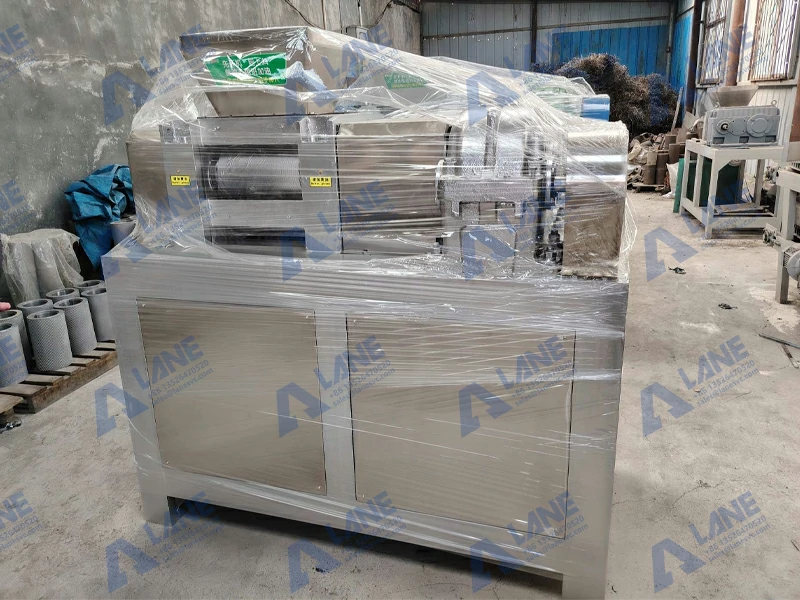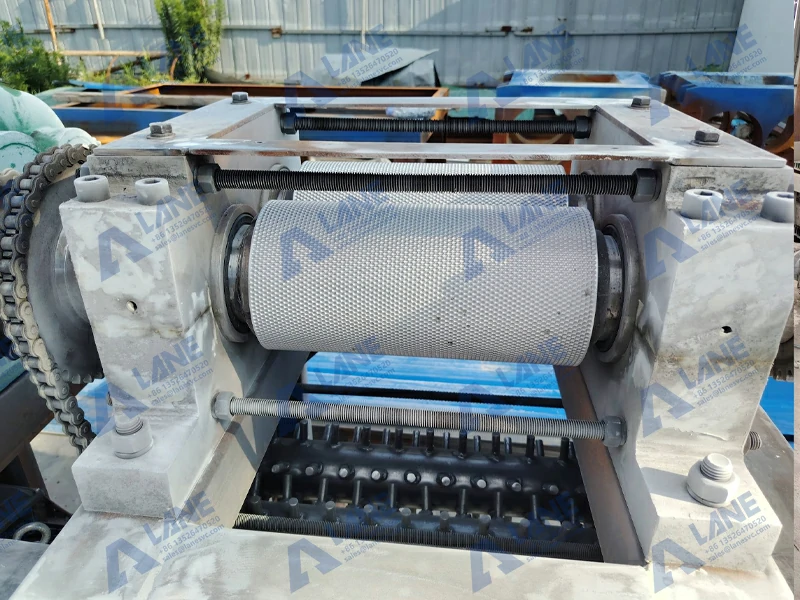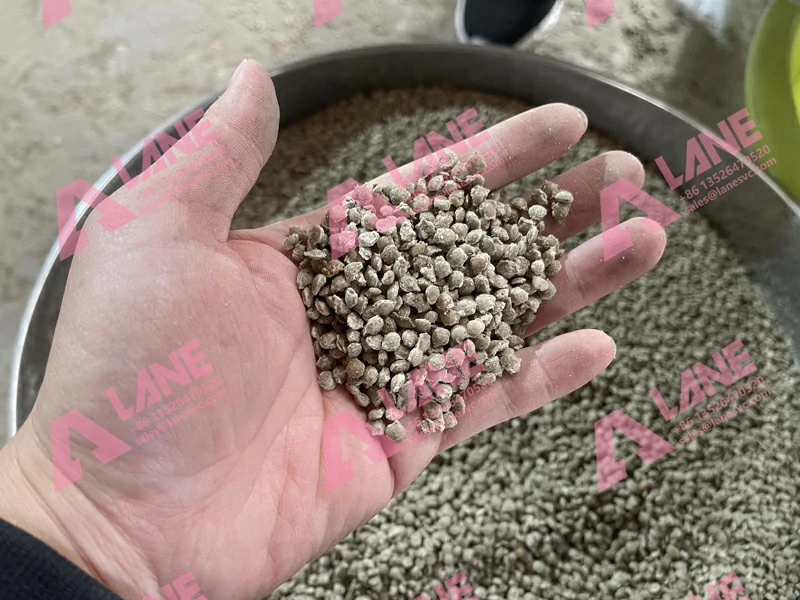Recently, a customer from Lebanon sent us a purchase request for a double roller granulator. During our communication, questions arose regarding the material of the equipment. After designing and discussing the plan, we finally decided to purchase a 2tph stainless steel double roller granulator.
In many cases, when faced with some relatively detailed questions, customers often do not know how to choose equipment. As a manufacturer with 20 years of experience in fertilizer machinery, Lane will provide you with the best solution, allowing you to purchase the most practical fertilizer machinery at the most affordable price.
In this article, we will take you through the differences and advantages of stainless steel double roller granulators, giving you the most practical advice and support.

Stainless steel models are usually 20%-30% more expensive than ordinary models, so we generally recommend the conventional models.
However, after communicating with the customer in depth, we learned that the double roller granulator he had been using for less than two years had already suffered serious wear and tear.
When the Lebanese client raised concerns about the material of the equipment, we did not emphasize the price advantage but instead conducted a thorough analysis of their raw material characteristics and production requirements:
Based on this, the Lane technical team recommended a stainless steel double roller granulator—this is not only a material upgrade, but also a zero-risk production system tailored for corrosive raw materials.

| Comparison dimensions | Stainless steel double roller granulator | Carbon steel double roller granulator | Key Differences |
| Durability | ▶ Service life: 8-10 years | ▶ Service life: 3-5 years | Stainless steel’s resistance to chloride ion corrosion has been improved by 4 times, and its overall service life has been extended by more than 2 times. |
| ▶ Salt spray corrosion resistance > 2000 hours | ▶ Salt spray corrosion < 500 hours failure | ||
| ▶ Roller surface hardness HRC58-62 (through hardening) | ▶ Surface chrome plating layer HRC55-60 (prone to peeling) | ||
| Applicable raw materials | ✓ Highly corrosive: ammonium chloride, potassium sulfate, deicing agents | ✓ Neutral raw materials: ammonium phosphate, ordinary compound fertilizer | Stainless steel double roller granulator can handle highly corrosive materials with a pH of 2-12, while carbon steel is limited to neutral environments with a pH of 6-8. |
| ✓ High purity: pharmaceutical powders, food additives | ✓ Non-halogen materials: lime powder, bentonite | ||
| ✓ High salt content: by-products of seawater potassium extraction, sodium cyanurate | ✗ Prohibited: Chlorine/sulfur/acidic materials | ||
| Price | Higher (1.3-1.5 times that of carbon steel equipment) | Low (basic model offers significant price advantage) | The premium for stainless steel double roller granulator is mainly attributed to the use of 316L material, precision polishing, and a sealed structure. |
| Long-term comprehensive cost | ▶ 60% lower annual maintenance costs | ▶ High annual maintenance costs | Stainless steel equipment can offset the price difference after 1.5 years of operation, offering higher cost-effectiveness in the long term. |
| ▶ Roller replacement cycle: 800-1000 tons/time | ▶ Roller replacement cycle: 300-400 tons/time | ||
| ▶ 40% reduction in downtime losses | ▶ Frequent shutdowns for maintenance | ||
| Health safety | ▶ Zero iron ion contamination (<10 ppm) | ▶ Rust causes iron contamination (>100ppm) | Stainless steel is mandatory for medical/food-grade production. |
| ▶ GMP/FDA certification | ✗ Cannot pass medical certification | ||
| ▶ Mirror polishing (Ra≤0.8μm) | ▶ Rough surface (Ra≥3.2μm) | ||
| Easy maintenance | ▶ Modular quick-release design (roll replacement < 1 hour) | ▶ Bolt-fixed type (roll replacement > 4 hours) | 75% improvement in stainless steel maintenance efficiency, reducing production interruptions |
| ▶ Self-lubricating bearings | ▶ Regular rust prevention treatment is required. | ||
| ▶ No maintenance required for anti-corrosion coating | ▶ Damaged coating needs to be returned to the factory for repair. | ||
| Granule quality | ▶ Granulation rate > 92% | ▶ Granulation rate 70-85% | Stainless steel has no sticking rollers and smooth demolding, significantly improving particle roundness. |
| ▶ Particle compressive strength ≥ 25N | ▶ Particle compressive strength 10-18N | ||
| ▶ Particle size deviation < 0.5 mm | ▶ Particle size deviation 1-2 mm | ||
| Typical applications | High-end fertilizer exports, pharmaceutical granulation, food additives, and seawater desalination by-products | Low-end domestic fertilizer, building material briquettes, soil conditioner | Stainless steel is suitable for high added value, strong corrosion, and export certification scenarios. |

“When you are faced with the choice between carbon steel and stainless steel, Lane’s 20 years of fertilizer machinery database will provide you with the best solution:
If the pH value of the raw material is >6 and there is no halogen, the carbon steel double roller granulator can save initial investment and is suitable for purchase and use at the beginning of the project.
If the raw material contains corrosive media, requires export certification, or requires zero failure rate, stainless steel double roller granulators have a 37% higher long-term return on investment.
We refuse to oversell and only provide solutions that have been verified by more than 1,000 customers.”
Lane Machinery — With 20 years of experience in the global fertilizer industry, we ensure that every piece of equipment becomes a profit engine for our customers.
📞 Contact LANE to obtain the Stainless Steel Granulator Selection Manual + a customized quote.